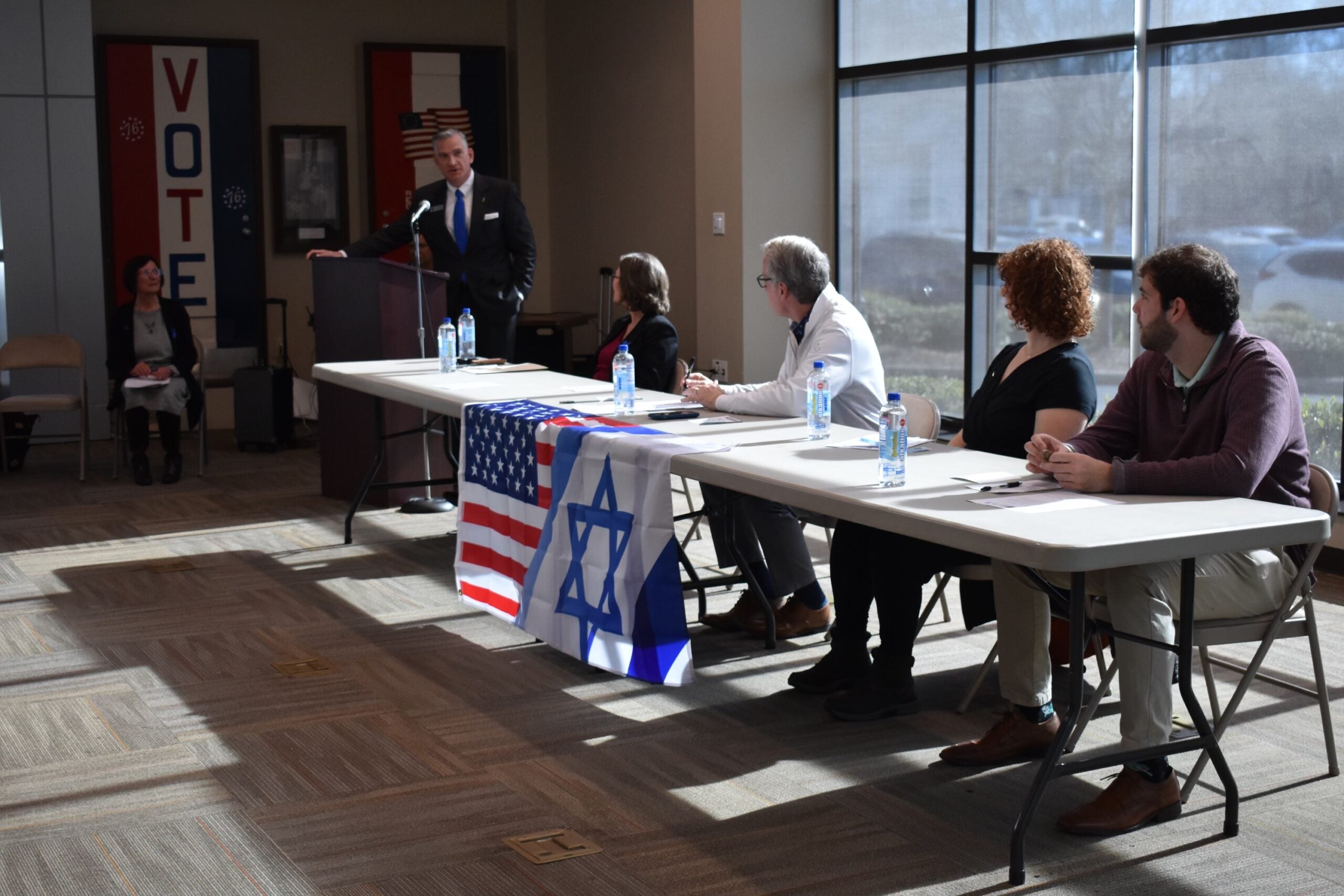To inspire audiences to fight against societal and religious division, the Jewish Community Center and Federation of Augusta (JCCFA) hosted a Perspectives on Hate program on Sunday, Jan. 14, that examined the impact of hate, bigotry, antisemitism and racism in present times.
Hosted at the Richmond County Municipal Building, located at 535 Telfair St., the program featured a keynote address from Agnes Mueller, a professor of German and comparative literature at the University of South Carolina, who spoke on the significance of Holocaust memory and antisemitism.
Highlighting her love of contemporary literature, Mueller emphasized the importance of reading books in order to gain a new perspective by acknowledging others’ cultures, histories and beliefs.
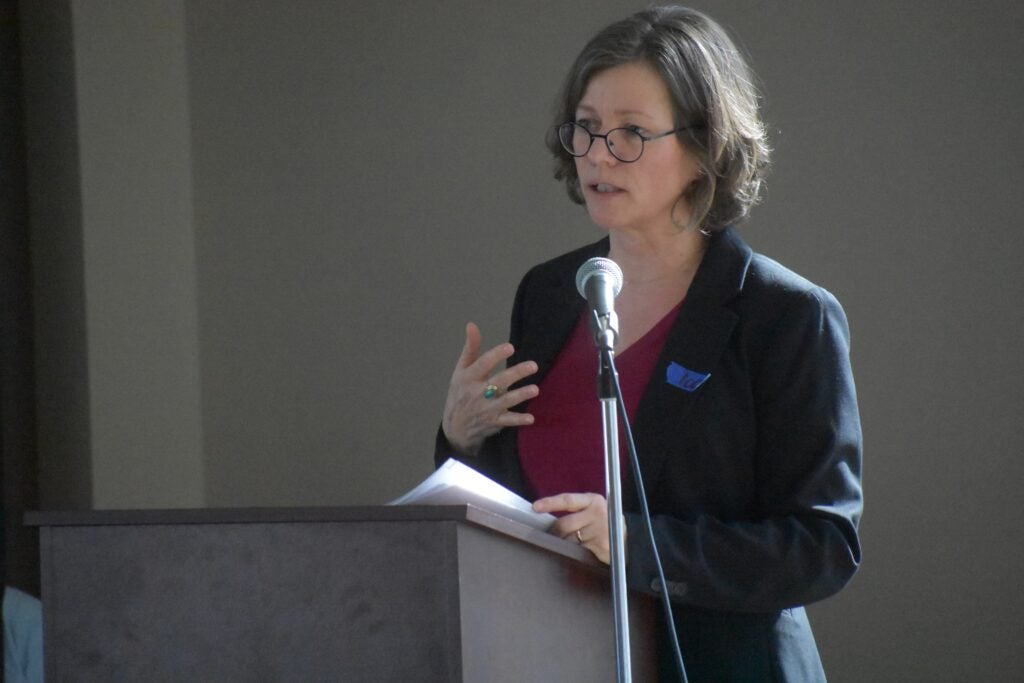
“Literature – with its many timeless opportunities for interpretation – can provide a more nuanced way to address complex societal, political and historical issues,” she said. “Even though this literature is removed in time and place from our problem at hand, it can sensitize us better to the current crisis than opinions and media outrage.”
Referencing how Germany has established a healthy manner of remembering and talking about the Holocaust, Mueller said universities and other schools need to work to implement the same model through promoting foreign and international voices.
By mentioning Jewish authors, such as Gleichzeit Salzmann and Olga Grjasnowa, Mueller said she believes books can eventually be a leading solution to fight antisemitism, Islamophobia and general hate.

“It takes time. It takes conscious effort,” she said. “Literature written in the wake of trauma and literature that considers different and perhaps opposing voices might have helped Claudine Gay formulate a better response pertaining to the issues of what she was dealing with on the Harvard campus … we now need the humanities more than ever.”
Following Mueller, the program continued with a question and answer session between attending audience members and panelists. In addition to Mueller, the panel included: Columbia County Judicial Court District Attorney Bobby Christine, News Anchor for News Channel 12/26 Richard Rogers, Mara Price Zeichner, an assistant campus director at the University of Georgia Hillel and Ben Budenstein, a current student at the Georgia Institute of Technology.
Answering various questions regarding hate speech versus the United States’ protection of free speech and prosecutors’ difficulty of balancing the line, Christine said he wholeheartedly believes the solution to hate and hate crime prevention lies in the power of households and familial authority figures.
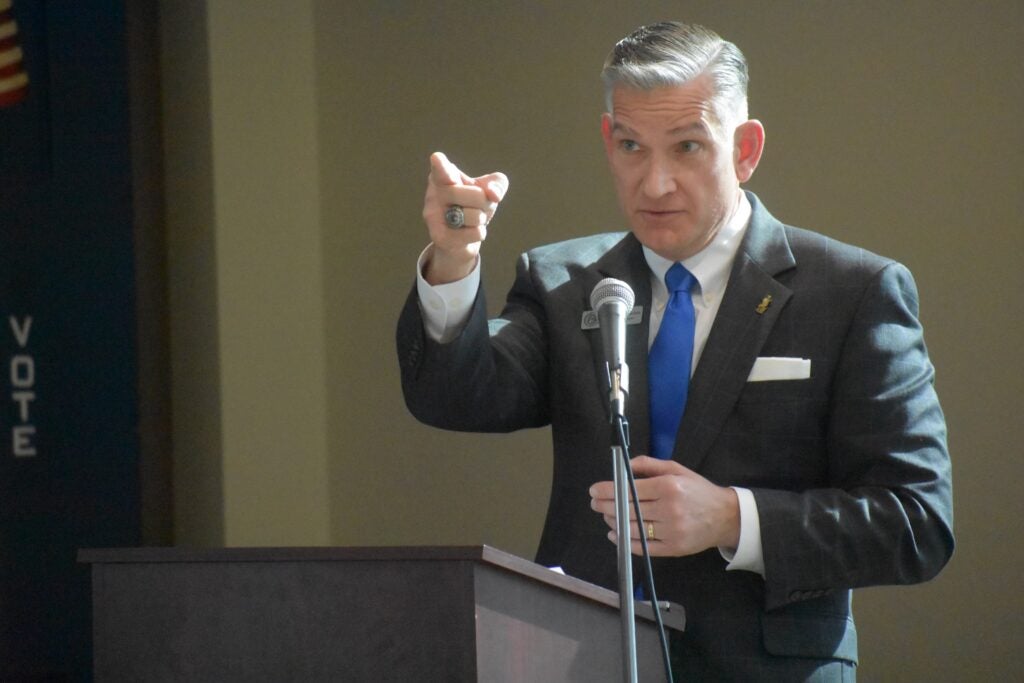
“This problem isn’t going to be solved by the law. It’s going to be solved on Saturdays and Sundays – in churches, mosques and synagogues. This is going to be solved, or not, at dinner tables with families, and that’s the scary part,” he said. “The law is not the answer to everything.”
As a prosecutor and father, Christine said dispelling hate leads to bettering one’s community for future generations and he believes community events, such as those hosted by the JCCFA, give the country “more bang for their buck” than a courtroom case.
“In the darkest, ugliest corners of our community, hate exists. Any community that accepts hate in any form will be victimized by hate … because when you accept it in some regard, you will suffer it in every regard,” he said. “The reality is every single day provides an opportunity to talk about being part of a community and how that community is diverse – it’s not something to be ignored.”
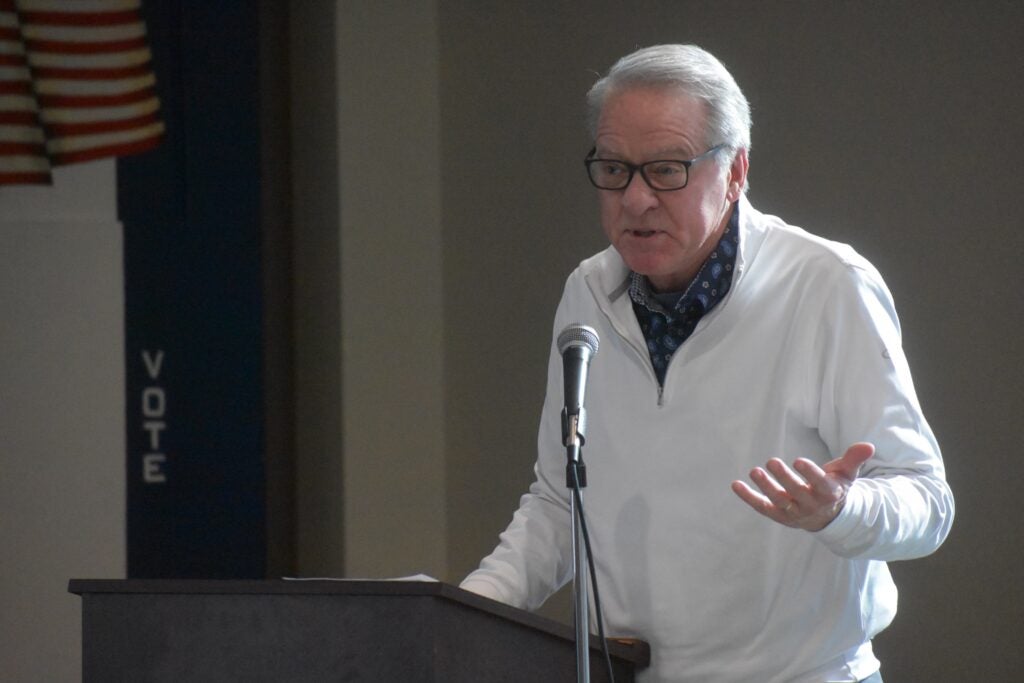
In agreeance with Mueller and Christine’s point of view on educating people, Rogers followed by expressing his belief in honest media coverage and using social media to be a tool of societal awareness.
“We do have a common enemy in this room and it’s hate, or more specifically terrorism by extension,” he said. “Having sources in Gaza, Israel and those places where there is war is so important. Propaganda is nothing new, but deep fakes are, so having reporters there is critical. Remember this, they are risking their lives to be storytellers over there.”
By individuals not involving themselves in online conflict through social media comments, but simply acknowledging the existing discourse, Rogers said he thinks recognition through media channels can lead audiences to further understanding.
“Social media these days is so much about outrage. You can find outrage in every corner and then – when you comment on it – you become part of the algorithm that feeds you more of that hatred and the negativity,” he said. “… we have to learn from each other. We have to listen to each other’s point of view and respect every person’s point of view.”
Communicating the importance of praying together and for each other, Rogers ended his comments by reminding attendees of the significance in faith and solidarity.
“Overall, I’m just optimistic and hopeful that people will pray for peace and it will prevail in the end,” Rogers said.
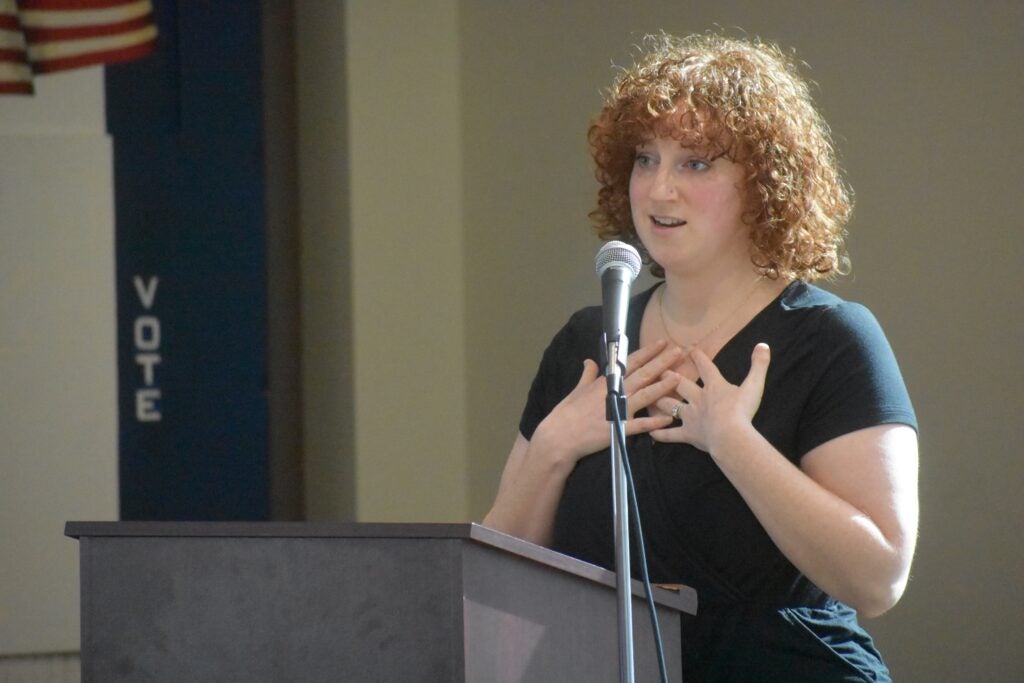
Discussing slightly opposing experiences on college campuses, Zeichner and Budenstein shared how each were seeing community response to antisemitism.
While Zeichner said UGA’s Jewish community experienced no backlash and became even closer, Budenstein said Georgia Tech’s students have experienced harassing comments from passersby, and even a vandalising incident involving shaving cream on the campus’ Jewish fraternity house.
“Many times, people on the highway honk their horns and say pretty derogatory things about Jewish students and the community, but it’s mainly against the organization rather than individual students,” said Budenstein. “We also had someone use shaving cream and write ‘free Palestine,’ which was obviously kind of concerning.”
However both expressed how Jewish students worked to fundraise money in support of Israel and showed interest in positively impacting their community in light of the attacks.
“Our students have been amazing. They have been advocates for Israel on campus,” said Zeichner. “Our students want to be involved. The greatest thing we’ve seen is that students don’t want to feel helpless or feel hopeless, so they want to see what they can do.”
Hosting a variety of attendees from the CSRA, members of the crowd shared their thoughts on ways to unite the community and how racism and hatred could be significantly decreased.
“It is very important that we have discussions going on. Most people have to learn about the history of other people,” said Muslim attendee Aladiem Fadel. “I know the interactions between religions and politics have always been a problem. Actually before political interference – in Palestine – people were living in peace. Jews, Muslims and Christians were living in peace.”
According to Fadel, Muslims have acknowledged that Jews and Christians are also people of faith.
“But there’s this struggle of taking human land. There’s a struggle now about human life and faith,” he said. “But that’s why I say we have to communicate. We don’t have to agree, but we do have to listen to each other with respect.”
Rabbi Remy Liverman, the first female Rabbi of Augusta’s Congregation Children of Israel, said she thought the forum was enlightening and interesting, because of the students’ perspectives and differing experiences.
“It is worrying to me – to say the least – that this rampant antisemitism, small or big, is happening on college campuses, and it’s very different in Atlanta and other bigger cities, ivy league colleges and universities in terms of how they’re supporting their Jewish students,” she said. “It’s very different to hear from [Zeichner] who’s at UGA versus [Budenstein] who is at Georgia Tech in Midtown Atlanta.”
Liverman said suffering students are being forced to advocate now not only for themselves, but for others in despair in Israel.
“It’s heartbreaking and I do worry about the future of Holocaust education in general with a growing number of Holocaust deniers in a younger generation,” she said. “Especially with the rise of social media. It just shows that it can be used for good and for bad.”
Fellow attendee Vice Chairman David Alalof of Columbia County’s Board of Education said he enjoyed listening to the speakers at the program, and believes many were correct in their thoughts on education playing a large part in ending the war.
“To me, the biggest problem in the world today is the teaching of hate to young children. That’s where the root of the problem is,” he said. “Until we can figure out how to talk about the past and people’s differences, like they did in Germany, I don’t see there being any peace in the Middle East.”
After thanking all panelists and audience members for their participation, staff from the JCCFA and Augusta Jewish Museum ended the program with a moment of silence to acknowledge those held hostage by Hamas for 100 days following the first attack.
For more information about the Augusta Jewish Museum, visit: www.augustajewishmuseum.org
Those interested in joining or learning more about the JCCFA can visit www.jewishaugusta.org.
Liz Wright is a staff writer covering education, lifestyle and general assignments for The Augusta Press. Reach her at liz@theaugustapress.com

